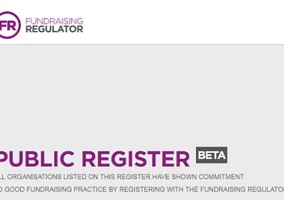Recently, an MP tried to make it illegal for commercial companies to make a profit from terrorism. Which, on the face of it, doesn’t sound unreasonable. But it’s potentially a concern for the charity sector.
Neil Coyle, Labour MP for Bermondsey and Old Southwark, was objecting to giving platform JustGiving's fee structure, which allowed it to collect hundreds of thousands of pounds from donations in aid of Grenfell, and following the terror attacks in Borough Market and central Manchester.
Coyle's proposals were made as part of the progress of the Counter-Terrorism Bill currently going through the Commons, and were voted down. But they raise once again an issue we've seen quite often. The public are getting quite suspicious of fundraising websites, and particularly of JustGiving.
We've recently seen sabre-rattling on a similar subject from Robert Jenrick, the Treasury minister with responsibility for charity tax relief, and two stories in The Sun about "rip-off fundraiser JustGiving".
The case for JustGiving
On the one hand, I’m supportive of JustGiving's position. It provides giving technology that works, and that’s great, and it can’t be done for free. It should be paid for.
There are arguments, to be sure, about whether it could be done more cheaply. There are those in the sector who think JustGiving is price gouging. They may even be right. But the sector too often prioritises cheap over good, and I’m not sure that's the best answer.
I’d oppose a rule to force JustGiving to do anything. It provides a service, and charges money to pay for it. We should be very careful about producing legislation which prevents people from profiting from offering services to charity. Because if we make it too difficult for enterprising people to help charities do better, and make enough money to provide that service, those services simply won’t be developed, and the sector will be the poorer for it.
(I suppose I should make a declaration here. Civil Society Media is also a limited company which provides services to the charity sector, as are many of our advertisers.)
Disasters are different
So you have to charge enough to provide a good service. No one's arguing with that.
On the other hand, everyone must admit that it’s not a good look to profit from humanitarian disasters. Whether or not it’s acceptable or appropriate to take a cut from Grenfell Tower donations, it makes you look bad.
In this case, I suppose, we can accept you're entitled to take the money, but maybe you’re not entitled to have people like you afterwards.
So I think it might be good PR for JustGiving to just accept that it shouldn’t make a profit on domestic and international disaster appeals.
I can obviously see the worry about setting a precedent, and about unequal treatment. Why should some appeals be free just because they’re in the papers?
But there’s plenty of evidence that the public see disasters differently. It’s viewed as a separate category of giving to other fundraising. There’s evidence that disaster responses don’t impact on other donations.
I don’t think ordinary members of the public mind at all that JustGiving collects 50p when they sponsor their mate a tenner to run a 5k. But somehow they view the same percentage, during a disaster appeal, as profiteering.
I suspect if the fundraising platforms acknowledge that artificial divide in people’s heads, and waive their fees specifically for disasters, the PR benefits would be more than worthwhile. There would be a cost, of course, but I'd imagine the lion's share of JustGiving's income doesn't come from the high-profile disasters.
There's already an official disaster appeal classification for international incidents, and we're getting closer to the same designation for domestic ones. I think if there was a different fee structure, just for them, and it was transparent, everyone would be happy with that.
|
Related articles












